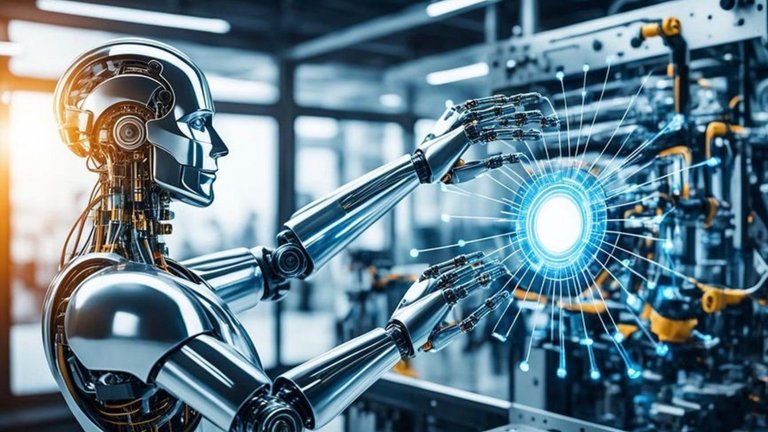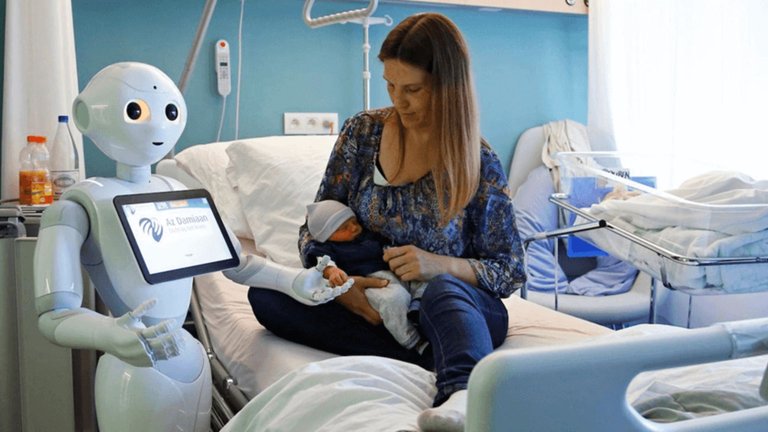Artificial intelligence (AI) has evolved over the past few years, it has become a powerful tool in reshaping our generation. Its ability to analyze large amounts of data, make decisions, and work quickly makes it useful in many areas. However, as AI evolves, questions arise about what tasks it should do and what roles should be in human hands. This blog explores what professionals should and shouldn’t do, balancing work with human needs and ethics.

Some tasks might be repetitive and routine tasks that humans sometimes fail to achieve or have poor performance over time. These activities require minimal decision-making and are highly structured. Data entry with AI processes a lot of data quickly and accurately, reducing human error and increasing productivity. It also performs repetitive tasks. These tasks are good for AI because they do not require creativity, intelligence, or a good understanding of human behavior. By performing these tasks, AI can increase efficiency and reduce the need for human workers to do the work on Earth.
High-risk or dangerous jobs AI and robots can be used in jobs that put people at risk, such as in hazardous areas, poisoned people, or in very hot weather. AI-powered systems can be used in situations where safety is important. Mining with Robots and AI machines can be used in deep-sea or underground mining to reduce risks to human workers. In the event of a building collapse, fire, or property damage, the direct impact on humans would be dangerous. In these cases, the ability of AI to work in high-risk areas makes it useful by reducing the likelihood of injury or death.

Jobs that require extensive data analysis The power of AI lies in processing large amounts of data and identifying patterns that may not be obvious to humans. In areas that require complex data analysis, AI can increase speed and accuracy. Medical diagnosis with AI has made significant progress in diagnostics, such as cancer diagnosis and other treatment information, in some cases more than human doctors. Financial analysis: In finance, AI analyzes large data sets on market behavior to predict market trends and improve investment opportunities. Routing and inventory management.
Creative Careers While AI can assist in the creative process, it is not a substitute for human creativity. Art is best suited for work that requires deep thought and originality. While intellectual art can be created, it does not have the style, cultural background, or imagination of its own that human actors can bring to bear on their work. In design, film directing, and the visual arts, creativity is rooted in human experience, making intelligence a tool rather than a substitute. Poetry, cannot capture the nuances of storytelling, the subtleties of character development, or the emotions of a human narrator.
Jobs that require interpersonal skills and interpersonal relationships. Roles that rely on interpersonal skills, understanding, and emotional intelligence cannot be effectively replaced by intellectual skills. These include jobs in personal care, counseling, and education. Therapy requires understanding, skill, and the ability to interact with clients in a very compassionate way. While AI can analyze data, it cannot provide the accuracy needed to help people with their struggles. Eating. Teachers interact with students, understand their needs, and adapt to their unique learning styles; these are all traits that cannot be replicated through AI. The roles of doctors and caregivers who interact directly with patients are not as good as those that require emotional support, responsiveness to difficult situations, understanding, and judgment.

Tough decisions, jobs that require fair judgment, and balancing competing interests are another skill gap. AI can help by providing insight and processing data, but it cannot understand the complexity of human values or solve cultural issues. Lawyers must make decisions based on law, ethics, and human experience. AI can identify precedents and propose legal opinions, but it cannot fully understand the human complexities that a judge or lawyer may encounter in their arguments. National decision-making often requires a deep understanding of history, culture, and human behavior. AI can help gather information, but it cannot replace the poor judgment required in high-stakes human roles. These require understanding, judgment, and detail beyond the capacity of the mind.
AI is revolutionizing every industry, providing efficiency, security, and advanced analytics that humans could not previously achieve. However, human workers still perform well in many areas, especially in jobs that require creativity, intelligence, and difficult decision-making. AI can enhance and support many tasks, but it should not replace the unique human touch needed in many areas. As we move forward, our goal should be to balance AI with tackling repetitive, dangerous, and data-intensive tasks while retaining roles that require human insight, thought, and judgment.
Thanks for reading
I hope you like it
do drop your comments and opinions below
Posted Using INLEO